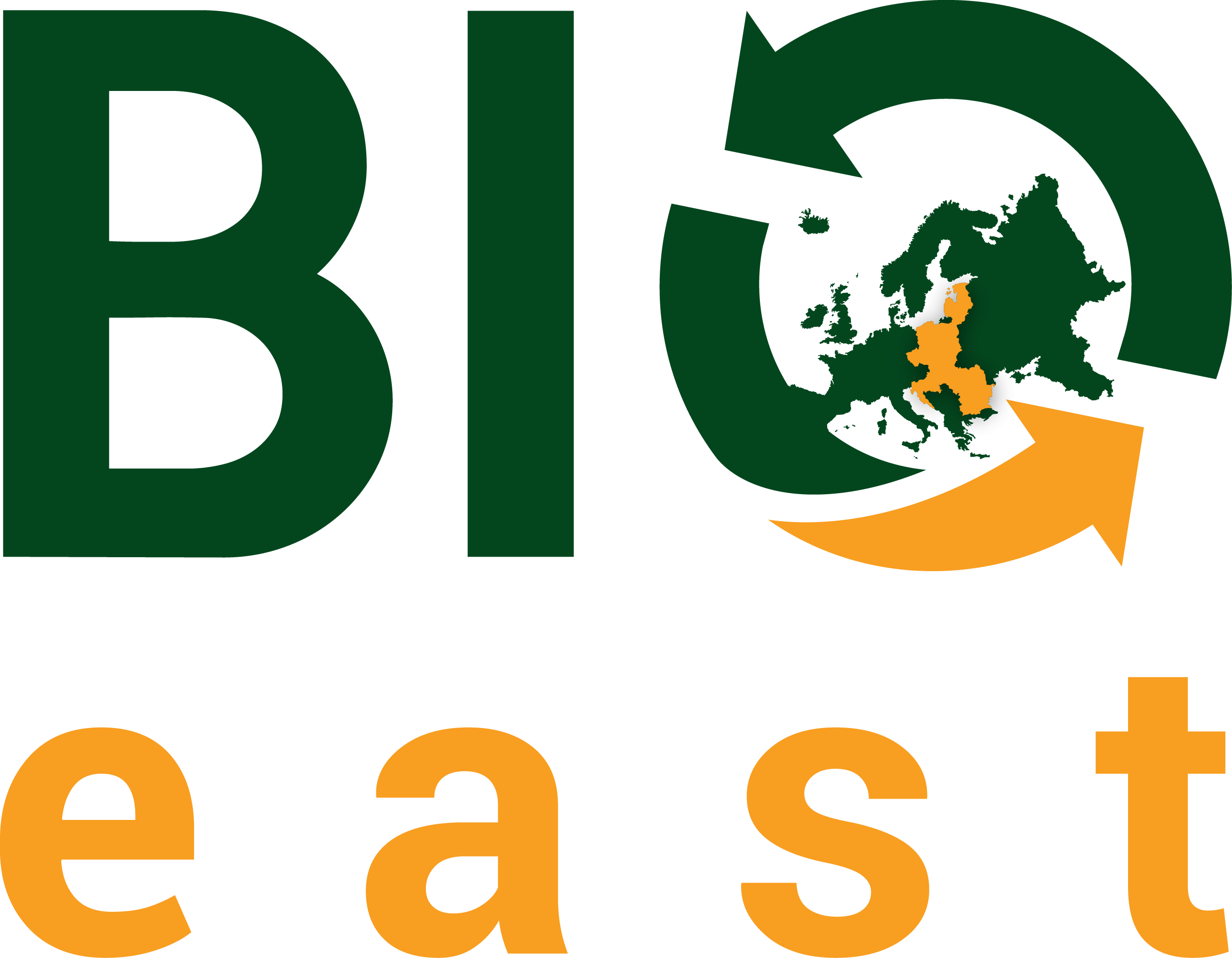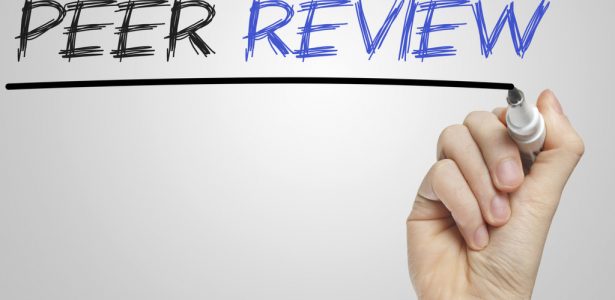A peer review is a friendly evaluation carried out by professionals working in the same field. It does not follow a specific scientific approach but rather encourages mutual learning and transfer of good practices. Peer review is indeed a method how to learn from each other. BIOEASTsUP peer review exercise on good practices for Knowledge Transfer is to share knowledge about the development of the effective systems as well as the best-suited approaches to improve implementation of bioeconomy innovative solutions into practice.
Peers
The group of peers was nominated from the project partners and experts nominated by project partners. Vast majority of them are peer reviewers for the first time in their career. The peer reviewers were Livia Kranitz who represents the Ministry of Agriculture of Hungary (BIOEASTsUP project partner), Livia Kranitz is also leader of WP2, in the first peer review she is interested to test the methodology of the Task 2.4. Zsofia Kunya represents the Ministry of Agriculture of Hungary, Zsofia Kunya is the BIOEAST NCP. Luka Juvančič represents University of Lubjana (BIOEASTsUP project partner), Luka Juvančič is responsible for the analysis and bencharming task 1.4 and also guidelines for SRIA. Boris Vashev represents FNR (BIOEASTsUP project partner), EU department involved in various international and national project. Boris Vashev is involved in the Task 1.1. setting the inter ministerial groups and national stakeholders´group, he is likewise involved in the WP5 SRIA validation. Markus Dettenhofer in the national leader of the CELEBio project representing the CELEBio project partner CEITEC from the Czech Republic. George Sakellaris is the member of the Foreseight Group of the BIOEAST Initiative, he is also a member of the Community of Practice formed to support the bioeconomy education.
environment and conditions for the technology transfer activities
Series of peer reviews started in the BIOEAST region in November 2020 in an on-line form due to the COVID-19 pandemic and the good practice of Agriculture Research, Ltd. (ART, www.vupt.cz) was discussed. ART selected several presentations to illustrate the environment and conditions for the technology transfer activities and also bioeconomy development in the Czech Republic and the activities of the Technology Transfer Center ART.
Ing. Iva Blažková, Ph.D. also presented the role of the CZECH ACADEMY OF AGRICULTURAL SCIENCES (CAAS,www.cazv.cz) – Scientific advisory body of The Ministry of Agriculture CZ in bioeconomy. Ing. Pavel Zemko, Ph.D. presented technology transfer activities in the Mechatronic Cluster (some details are provided in the Annex). The Mechatronica Cluster is involved in a new project BE IN financed by the Technological Agency programme ETA , the BE IN project will deliver several case examples for SMEs to show the benefit of bioeconomy implementation. Ing. Květuše Hejátková from the ZERA Agency (www.zeraagency.eu/) presented her experience as an Innovation Broker and named a few problems, primarily: the difficulties with the development of the administrative requirements, the procedure was not fully accomplished and the requirements were being developed all along with the establishment of the operational groups. She also explained that as the finance was provided ex post after the project was finished, the difficulties with pre financing caused a few withdrawals of the applicants.
The bio energy primarily biogas sector is highly developed in the Czech Republic, AgriKomp Bohemia, a.s. (https://agrikomp.com/cs/) is one of the key player. AgriKom Bohemai, a.s. presented the core activity biogas plants production as it is one of the key players in the Czech Republic. AgriKomp Bohemia, a.s. is developing a few R&D project in close cooperation with ART. These projects are focused on the digestate treatment, biogas intensification or new agrotechnigue.
Technology Transfer Center ART.
Technology Transfer Centre ART was established in 2010 and it is focused on linking research in the field of agriculture, food processing and also on bioeconomy with business practice focused on applied research and implementation of innovation into practice. Technology Transfer Centre provides complex services in administration terms (legal, financial etc) or actual terms (livestock production, landscape management, bioeconomy). A few projects were developed and implemented, team of experts and also networks of partners have been stabilized in this period of time (f.e. www.inovacezvt.cz, www.bioenergetikazvt.cz, www.puda-kompost-zivot.eu or www.quentinos.eu). The support of bioeconomy implementation in the Czech Republic comes as a natural outcome and follow-up of all the above-mentioned activities of the Technology Transfer Center ART.
Technology Transfer to speed up bioeconomy
The peer review concluded in several remarks concerning technology transfer that shall speed up the implementation of results of (applied / oriented) research into practice to boost bioeconomy innovations. Technology transfer in a given country is indeed influenced by the management of R&D&I and it is influenced by side stream performance measurement. ART was involved in the project organised by the Ministry of Education and Youth coordinated by Mr Eric Arnold (Technopolis). Team of experts developed a new system of the performance of research organisations, stakeholders were involved as a wide national debate was organised. The final methodology was not implemented though. Association of Research organisation provided a new methodology and it created a bases for the new evaluation system implemented in the Czech Republic. The methodology of the Ministry of Agriculture CZ is a very good example of the complex evaluation, that includes also human resources, social and environmental pillar. The climate of technology transfer is also influenced by the form of support (direct, indirect). AVO has been initiating the tax incentives and transparent conditions for the indirect support and participated in consulting relevant legislation.
The role of Innovation Broker is crucial for assisting farmers and implementation of innovation and applied research, the weaknesses of this policy tools were project management and system of financing. ART also employs an expert who participated in the trainings and passed the exams, the experience was identical to the Ms Hejátková´s experience. Experts of the Technology Transfer Centre ART are currently developing several projects focused on new digital tools for agriculture, production of super bio fertilisers, new agriculture friendly practice to prevent erosion or biogas enrichment in close cooperation with SMEs.
ART cooperates with AVO in providing methodological support for SMEs and development of new managerial tools to measure R&D performance in SMEs. New methodology based on the Balance Scorecard was developed in 2020, as a follow up activity a new project focused on the bioeconomy business model implementation in SMEs was supported by the Technology Agency CZ (www.tacr.cz) and it was launched in November 2020.
The COVID -19 crisis is having a heavily impact on the available funding for the applied research, primarily the Technological Agency of the Czech Republic has a limited resource for the national programmes. Therefore, the experts in the Technology Transfer Centre ART have been intensively searching for international funding opportunities.
The discussion accented different approach to technology transfer in big and SME companies. SMEs are considered an important sector and get oriented easily in the “new” economic sectors that bioeconomy is. SMEs are also more flexible to adopt innovation and also to cooperate with research organisations, however they might have various reasons for this cooperation depending on their priorities. ART has developed a lot of projects with SMEs and is also involved in the development of new managerial method for management and performance measurement of R&D in SMEs. The peer review reassures the importance of these activities.
RNDr. Jan Nedělník gave a short reflection of what is working good and which mistakes should be avoid: “ In the very beginning our idea was to provide wide range of activities right from the beginning. In fact, the capacity building period and the establishment of networks of clients and partners helped us a lot to stabilize our activity and the BIOEAST HUB CZ that was established in 2019 with the support of the Ministry of Agriculture of the Czech Republic, the national BIOEAST HUB CR (www.bio-hub.cz) was established in November 2019 by ART with the support of the Ministry of Agriculture CZ is built on these experience and contacts. “
As a coordinator of BIOEAST HUB CZ ART has communicated the importance and benefits of bioeconomy, this national network is open for the representants of the related associations as their participation in the national thematic working groups is vital for the support of bioeconomy in the Czech Republic.
Marie Kubankova

